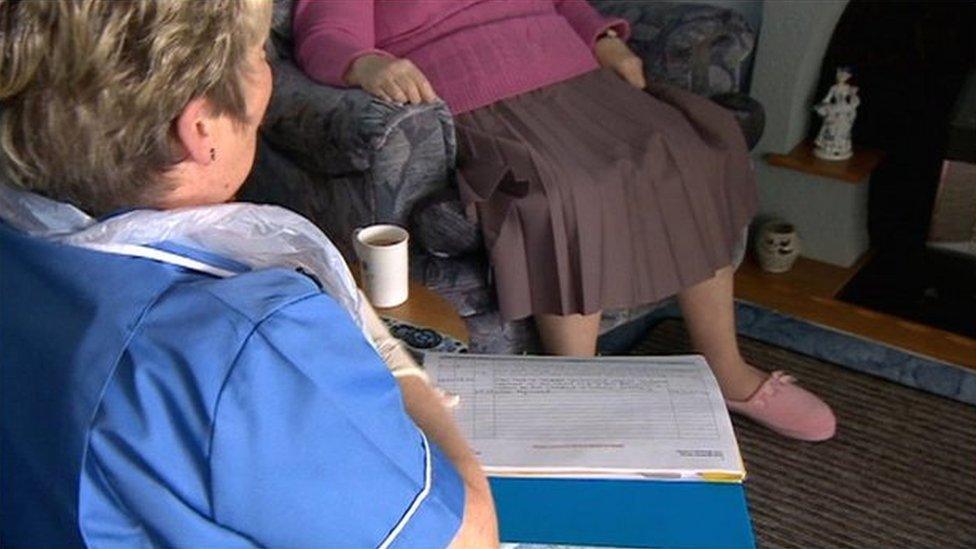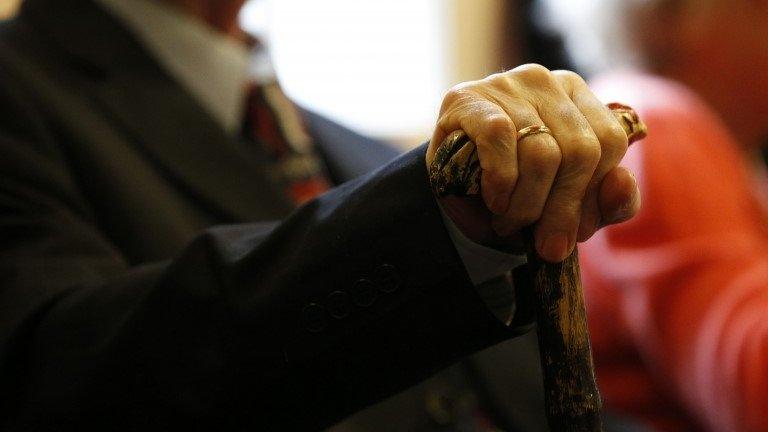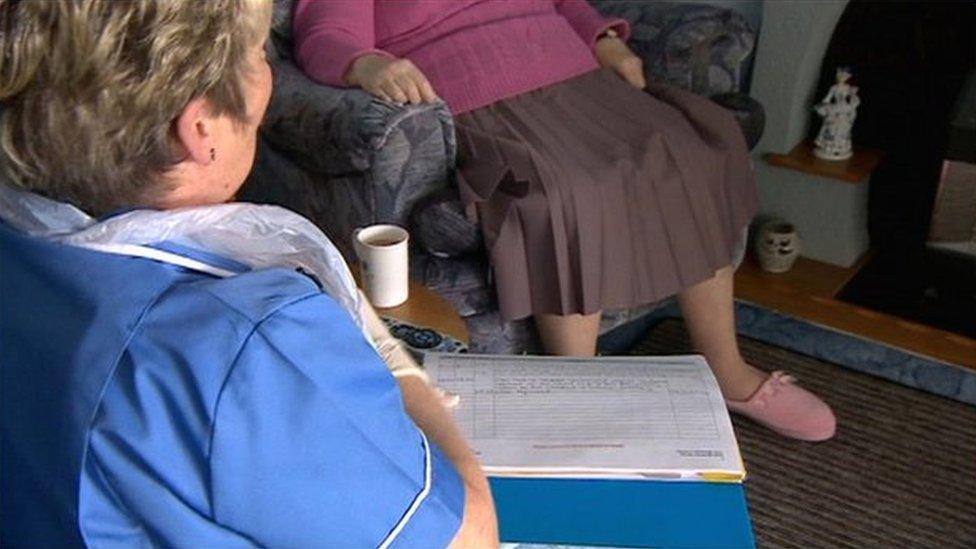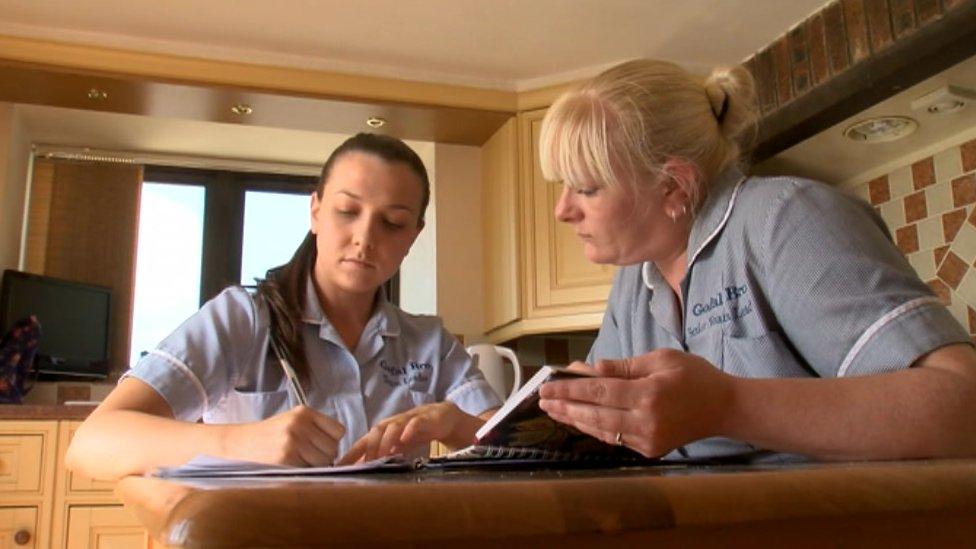Plan to restrict zero-hours contracts for home carers
- Published

Zero-hours contracts for home carers in Wales could be restricted to improve recruitment and care standards.
The Welsh government also wants to ensure staff are paid the minimum wage and firms pay for time spent travelling to clients.
It comes as research, external shows a link between employment terms and conditions and the quality of care delivered.
Health Minister Mark Drakeford said sustainable social care was dependent on a stable workforce.
Launching a consultation on the plans, Mr Drakeford said: "I am very aware of the significant variations in the workforce and the consequences of this for the quality of care. These matters are particularly acute in domiciliary care.
"The consultation being launched today sets out a range of measures the Welsh government could take to improve the quality of domiciliary care in Wales by having a positive impact on the recruitment and retention of domiciliary care workers."
'Insecurity'
Mr Drakeford added he was aware the rise in minimum wage over the next few years would place financial pressures on the sector, but said the consultation would help the Welsh government understand the impact of its proposals on the sustainability of care provision.
A number of councils in Wales which use zero-hour contracts have previously said they often suit employees, and staff still get benefits including sick pay and paid leave.
But union Unison, which has campaigned for them to be scrapped, has said such contracts bring insecurity for workers who are not always guaranteed work, and said staff were less likely to criticise employers over fears they would not be asked back to work.
It is estimated there are 19,500 home care workers in Wales, delivering about 260,000 hours of care a week to 23,000 people.
The sector has a staff turnover of about 32% and a vacancy rate of 6%.
- Published24 March 2015

- Published8 January 2016

- Published10 September 2014

- Published9 July 2015

- Published1 April 2015

- Published1 April 2015
